Austin Channell: Summer Internship at Evamere Entertainment in NYC
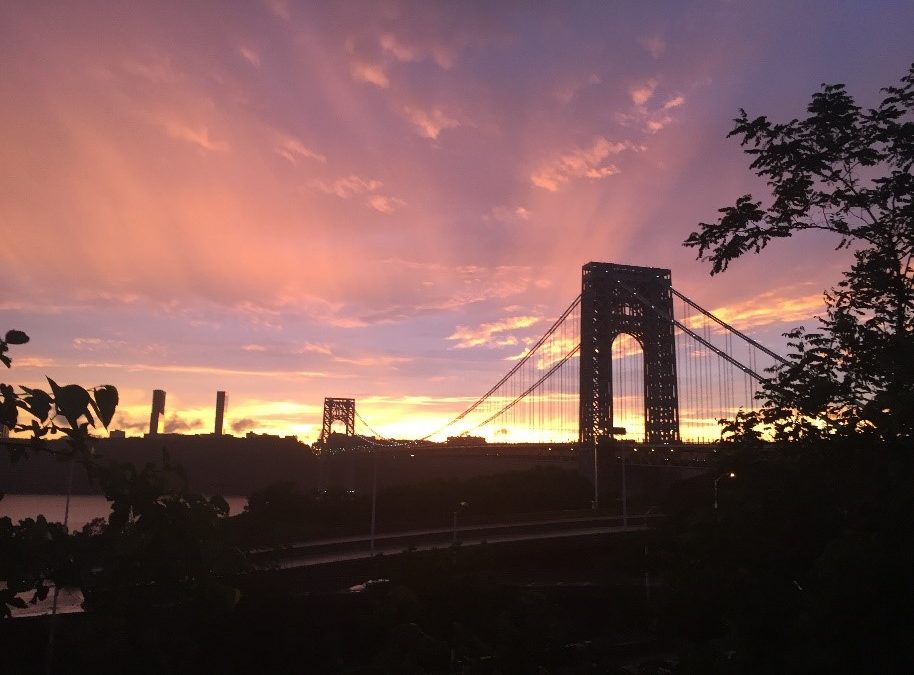
Since Memorial Day weekend, I have been interning with Evamere Entertainment, a film and theater production company in New York City. The company, led by seasoned producer John N. Hart Jr., has been involved in a wide range of films, plays, and musicals. Some notable highlights include the musicals Chicago, Once, and A Bronx Tale, the films Boys Don’t Cry, You Can Count on Me, and Revolutionary Road, as well as productions of Hamlet and The Glass Menagerie.
My day-to-day tasks typically involve reading film or theater scripts and writing a coverage document, a one-page sheet containing a script summary and comments on the piece’s commercial viability, as well as possible areas of improvement. These coverage sheets are then circulated throughout the office, where they can be used to inform future conversations about potential projects. If I’m feeling productive, I read around two or three scripts a day, devoting an hour or so after I finish reading for reflection and writing. Our small office (there are three employees who all work in essentially the same room) is located in the city’s historic Film Center building, between 44th and 45th.
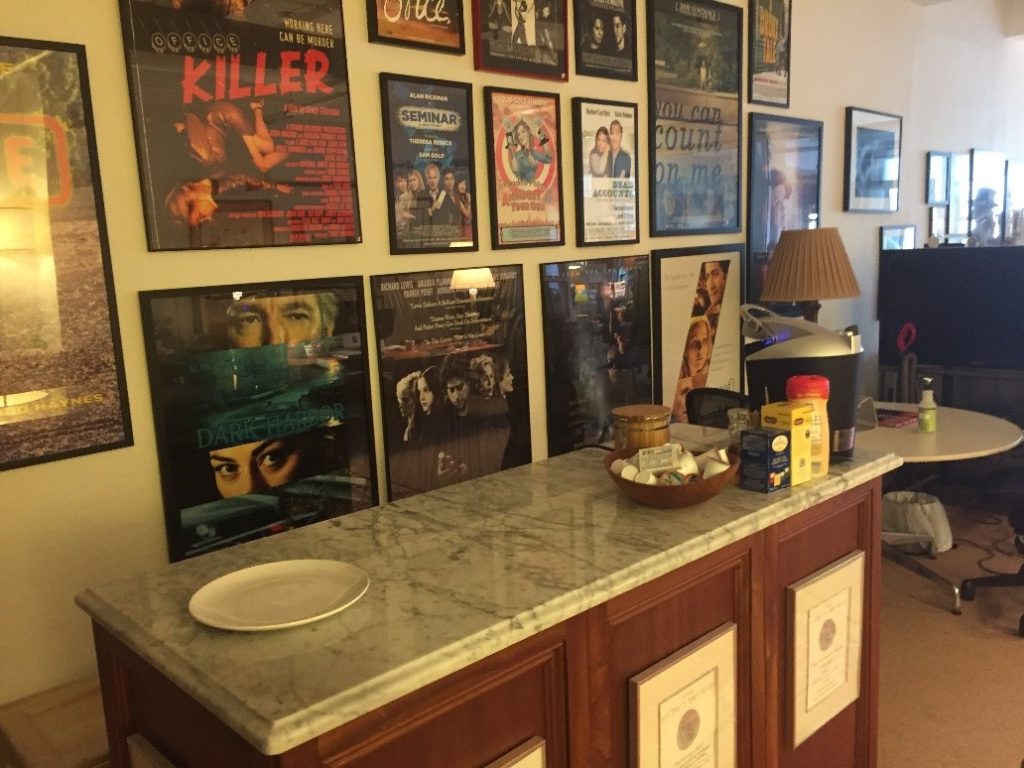
Roughly 30 minutes away (by subway), I sublet a room in Washington Heights, an area in north Manhattan with the largest immigrant population of any neighborhood in the city. I rarely hear English spoken (except to me) and I’ve found great joy in frequenting local mom-and-pop restaurants serving traditional dishes at affordable prices.
The affordable prices are crucial, because while the Curb Scholars Program’s stipend is generous, New York is not cheap. To save money when I’m not at work, I’ve spent many afternoons sitting in nearby J Hood Wright park, reading classic works of theater I’ve always wanted to read but haven’t found the time to study. Tony Kushner, Arthur Miller, Tennessee Williams (less so), and many others. This summer is actually the first time in several years that I’ve had the chance to read for pleasure. Even with a full-time job and the chaos of living in a city of 8.5 million people, I’ve finally found the chance to breathe and decompress. If anything, I’ve gained a greater appreciation for its value. Immersing myself in quality works in my free time has made me feel better prepared for writing coverage at work, and I’ve become progressively more confident in my opinions on pieces.
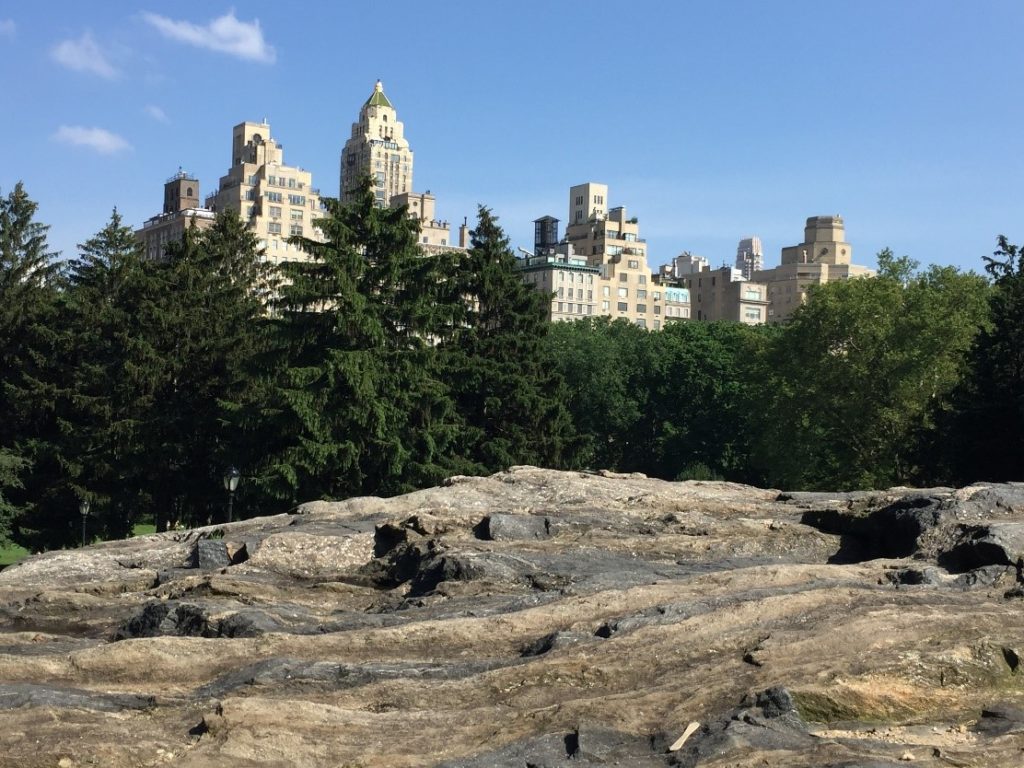
When I’m not reading or working, I’ve spent my time out exploring the city and all it has to offer – food, museums, art, and most of all, theater. This marks only my second time in the city, the first instance being a trip over spring break to interview for my current position. Even if I wasn’t selected for the internship, I was thrilled that my brother Spencer and I finally had enough of a reason to schedule a trip to New York. I’d always wanted to be able to see a Broadway show. After all, I grew up with an unfaltering love of theater and film. In middle school and high school, it was not uncommon for me to perform in three shows a year, mostly musicals. I further fueled my passion with small film roles, dance, voice, and gigs in pit bands for musicals and choir concerts. I was thrilled by the energy of the stage, and treasured witnessing the effect a well-executed show could have on an audience. Unlike film, in theater you could receive immediate feedback in audiene members’ laughter, applause, tears, or eye-rolling.
Growing up in such a theater-saturated environment, I developed an idyllic vision of what the world of New York Broadway theater must be like. With the exception of my youngest brother, my family never made a trip to the city when I was young, and so I never had the opportunity to experience theater at that level. When friends would travel to New York and see shows, they would speak about them with a bemused, knowing reverence, exchanging glances with others who had seen the same shows. My family went to see touring productions of shows, but I was certain that New York shows must be in a league above. Why else would people spend so much to repeatedly make their theater pilgrimage? Because this ecosystem of elite performance seemed to be so unreachable, I also was sure I could have no role in that world. Sure, I was talented in the central Ohio community theater world, but this was Broadway.
Over spring break, my brother and I were lucky enough to snag some standing room tickets to the Broadway production of Hamilton. We were ecstatic. Not only were we going to New York for the first time, but we were going to see what is arguably the most hyped, most talked about show of this century. Finally, we would be in the proverbial “room where it happens.” We arrived at the theater, settled in, and squeezed each others’ hands as the curtain rose. It was time. After a few songs, when my excited jitters abated, I came to a realization: I was certain beyond a shadow of a doubt that this show was . . . okay.
I know, them’s fightin’ words. Bear with me.
There are things that I liked about it, and things that I didn’t like. I saw areas of excellence and areas for potential improvement. Was it fun? Yes. Did it blow me away? No. Would I pay full price to see it again? Probably not.
The same has been true of the material I’ve been exposed to at Evamere. Some of it is wonderful. Some of it not so much. Everything is a mixed bag, even with a game-changing show like Hamilton. While some may see this disillusion as disheartening, I found it to be comforting. As an outsider, when all you hear about are the glossy highlights of the performance world, it’s easy to think that entry into such a world must be an impossible nut to crack. After a few weeks at Evamere, I became convinced that I could have something to offer the world of theater and film, and that my perspective can be valuable.
Whatever romantic notions one holds about the entertainment industry will be further shattered by the ever-present practically of financing. Sure, you can think of art as a perfectly noble quest for truth and substance, but you still need to fund it. If a tree falls in a forest and nobody’s around to hear it, does it make a sound? If you write a play about a tree falling in a forest and nobody comes to see it, does it matter?
A mentor of mine once encouraged me to think of each film or show as a small company with a very specific mission, and I think that analogy is rather accurate. That said, I’ve never seen a company with a business model like those used for theater and film projects. To use theater as an example, upon digging further into the finances of several shows, I gained a greater appreciation for how shockingly impractical and risky the economics of mounting a musical are. Many shows require initial investments of upwards of ten million dollars, and then cost several hundred thousand dollars a week to continue operation. It’s rare for a show to turn much of a profit unless it runs more than a calendar year, which is a lot of performances when you’re doing eight shows a week. Objectively, this is kind of bananas. But, it’s easy to see why people invest in these projects regardless, especially when considering my Evamere co-workers. I have rarely felt so comfortable, welcome, and happy at a job before. The work environment was fun, supportive, and playfully antagonistic. When we ran into disagreements (we’re all very opinionated, after all), we worked together to build a common consensus. I’ve never felt so engaged and excited by work before. My internship engaged my mind fully, and I would wake up in the morning excited to see where the day would take me. I treasure the Evamere team, and I’m going to miss them.
In the world of production, there are so many moving parts, so many variables, and the risk is so high. The world of theater and film is imperfect. Sometimes it’s nonsensical. And frustrating. But I still love it and all that it’s able to do. And so, I’ve resolved to find ways to help improve this world, on any level I can, starting with my final semester at Vanderbilt.
In the fall, I’ll be directing Vanderbilt Off-Broadway’s production of American Idiot, a rock musical based on the Green Day album of the same name. Through my internship, I’ve had the unique opportunity to discuss the show with artists involved in the original Broadway production. By spending time in the New York Performing Arts Library in Lincoln Center, I’ve been able to pour over reviews, interviews, programs, and sketches dating back to the show’s inception. I know that these experiences will better inform my understanding of the musical, and I’m thrilled to have the chance to bring what I’ve learned back to campus. (Side note: performances are January 11-13, 2018; please come and bring friends) What’s next after that? I’m not sure anymore.
Beyond short-term gains for the fall, my internship has caused me to totally rethink my potential post-graduation plans. With a brain wired for quantitative work and a life-long love of the performing arts, I’ve struggled to settle on a path which I feel is able to combine my passions and my abilities. Likely due to a failure of imagination, I have struggled to determine how to marry my seemingly disparate proclivities. I viewed them as falsely dichotomous, and spent years telling myself that because engineering is something that I can do, it’s therefore something I should do as well. This is a relatively universal problem for students, but it was exacerbated for me by the fact that my placeholder pursuit, engineering, so consumed my time that I was left with very little time or energy to devote adequate thought to almost anything else. Evamere presented a possible solution to my quandary. While producing serves the end-goal of creating art and entertainment, much of the work revolves around finance, logistics, and critical analysis. This combination has been deeply satisfying, but beyond the fulfillment of the work, another quality I find attractive about the producing world is how invisible it can be. As a producer, one has the ability to be a tastemaker and provide significant creative input on projects without losing a chance at a relatively normal daily life. As a thought exercise, think of your favorite film. Do you know who starred in it? And the director? If you’re a writing buff, who was the screenwriter?
Okay, now who produced it?
That’s what I thought.
Whereas previously I was sure I was most comfortable in chaotic, frantic busyness, in highly visible positions, that mentality has taken a psychological toll on me over the past few years. This summer, I was finally able to strike a balance between my passions, my proclivities, and my need for self-care, and it’s reinvigorated my anticipation for what the future may hold.
One moment in particular comes to mind.
As I was preparing to move to New York (and procrastinating packing) I saw an Instagram photo from an old friend, Peter. He and I used to perform in shows together when we were in middle school. I learned of his summer plans shortly after realizing that one of my dearest friends, Thomas (who also used to perform with Peter and me) would be in New York this summer as well.
I was overjoyed by the thought that the three of us might reunite for the first time in years, in a new city we were all excited to explore. Why we didn’t discuss our summers prior to this moment and coordinate housing defies explanation. Classic male planning.
About a month into my time in New York, We decided to meet one evening to eat popcorn, drink summer-y white wine, and watch the Tony Awards. Classic male bonding.
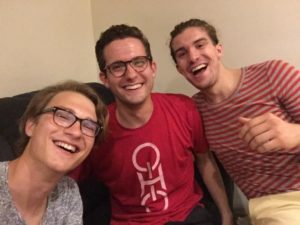
As each new award category was announced, we would place bets on who would take home the prize. The pressure was on, since Peter and Thomas were certain my employment with a theater producer would make my predictions much more accurate than theirs.
However, whatever insider knowledge I may have proved to be essentially useless, and by the end of the night you could count my correct predictions on one hand. I remember during the last Word Cup there was an octopus who would pick winners of matches by swimming over to different boxes in his tank. I wonder what he’s up to now, because I have an opportunity if he’s free.
We climbed the stairs to the top of Thomas’s apartment building, brushing past the numerous DO NOT ENTER signs. Walking to the edge of the bare roof, we lay down next to each other, our heads mere inches from the ledge separating us from the street, eleven stories below.
We talked about the future and looked out at the city skyline, a spectacular monument to a world full of possibilities. Despite years of swirling stress, crushing workloads, and frantic scrambling to stay on top of my life, in that moment, I was still.
And I knew that, no matter what comes next, it’s going to be okay.
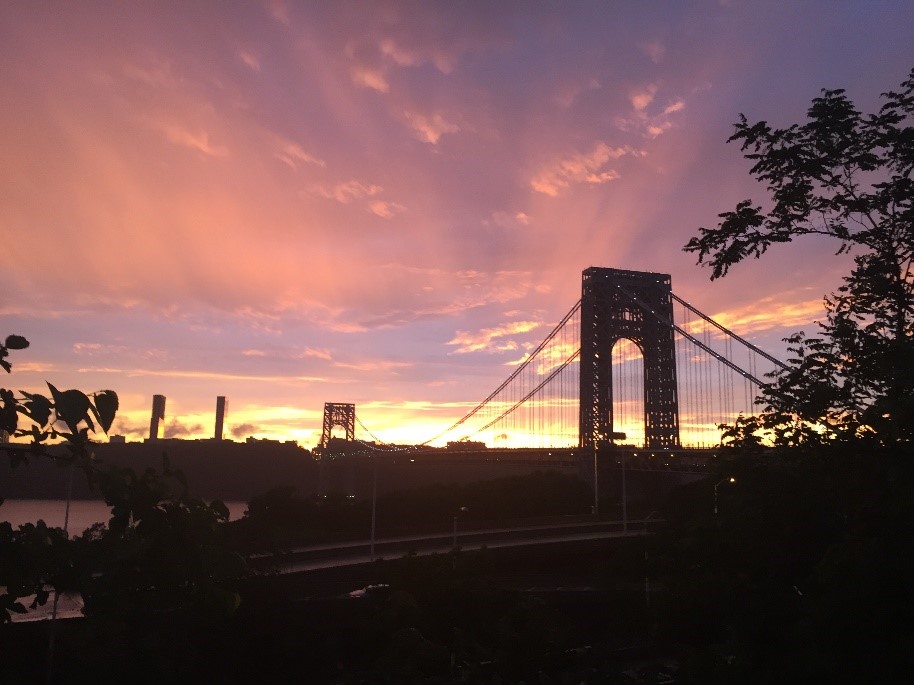
Click here to leave a comment

